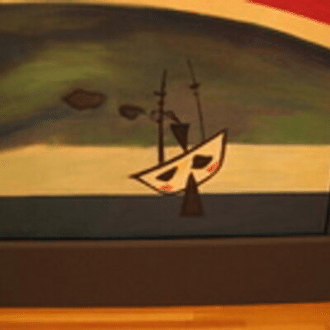
『傷つかないと優しくも強くもなれない?』日本語英語韓国語日記2025/02/03
*各言語でニュアンスが違うのは文体をそれぞれ変える練習ですのでご容赦ください。
傷ついた人は「優しさ」や「強い」とよく言われるがその考え方があまり好きではありません。なぜなら傷つかないと人は優しくなれないや強くもなれないのを感じがする。まるで人間の成長が「痛み」を通過しなければならないかのような前提になっているのは、腑に落ちない部分があります。「何かを乗り越えた人」だけの特権であるわけではなく、日常の平穏の中でも育まれるものですよね。親切な行動を見て自分も優しくなろうと思ったり、感謝される経験が自分の優しさを強めたりすることもある。「優しさ」や「強さ」は、必ずしも傷つくことで得られるものではなく、学びや環境、日々の経験から自然に育まれるものでもあるはずです。逆に、傷ついたことで心を閉ざす人も多いですし。どんな価値観が心にフィットするのか、考え続けることは大切ですね。そもそも「優しさ」や「強さ」も曖昧で個人差がありますよね。ある人にとっての「優しさ」は、他者に干渉せず自由を尊重することかもしれませんし、また別の人にとっては寄り添い助ける行為が「優しさ」と見なされるかもしれない。「強さ」も同様で、感情を抑えることが「強さ」と捉えられる場面もあれば、自分の弱さを素直に認めることが「強さ」とされる場合もあります。「必ず痛みを伴うべきだ」という固定観念は解き放ってもいいのかもしれません。人はそれぞれ異なる道を通って「優しさ」や「強さ」にたどり着ける、と認める視点が広がると良いですね。
People often say that those who have been hurt are "kind" or "strong," but I’m not particularly fond of that way of thinking. It implies that unless you’ve experienced pain, you can’t become kind or strong. This underlying assumption—that human growth must necessarily pass through suffering—doesn’t sit well with me.
Kindness and strength are not privileges reserved only for those who have "overcome" hardships. These qualities can just as well be cultivated in the peaceful moments of everyday life. Witnessing a kind act might inspire you to become kinder, and being thanked by someone can deepen your own sense of compassion.
Kindness and strength don’t have to be born from pain. They can grow naturally through learning, one's environment, and daily experiences. On the contrary, many people shut themselves off from the world after being hurt, unable to open their hearts again.
It’s important to keep reflecting on what values truly resonate with you. After all, "kindness" and "strength" are vague concepts with significant individual differences. For one person, kindness might mean respecting others’ freedom without interference, while for another, it might be offering support and staying close. Strength, too, can vary—sometimes it’s about holding back your emotions, while other times it’s about having the courage to openly admit your vulnerabilities.
We should free ourselves from the fixed notion that "pain is a necessary prerequisite." People can take many different paths to reach kindness and strength. Recognizing this diversity of journeys can broaden our perspectives and make room for a more inclusive understanding of growth.
사람들은 종종 상처를 받은 사람이 "다정하다"거나 "강하다"라고 말합니다. 그러나 저는 그 생각이 그리 좋지 않습니다. 왜냐하면 상처를 받지 않으면 사람은 다정해질 수도, 강해질 수도 없다는 인상을 주기 때문입니다. 마치 인간의 성장이 반드시 "고통"을 거쳐야 한다는 전제가 있는 것 같아 쉽게 납득하기 어렵습니다.
"어려움을 극복한 사람"만이 다정함이나 강함을 가질 수 있는 것은 아니지 않습니까? 일상 속 평온한 순간들에서도 이러한 가치들은 충분히 길러질 수 있습니다. 친절한 행동을 보고 나도 다정해지고 싶다는 생각이 들거나, 감사 인사를 받으며 내 다정함이 더 강해지는 경험도 있잖아요.
"다정함"이나 "강함"은 반드시 상처를 통해 얻어지는 것만은 아닙니다. 배움이나 환경, 그리고 일상의 경험을 통해 자연스럽게 길러질 수 있는 것이죠. 오히려 상처 때문에 마음을 닫아버리는 사람들도 많습니다.
어떤 가치관이 내 마음에 맞는지를 계속 고민하는 것은 중요한 일입니다. 결국 "다정함"이나 "강함"이라는 개념도 매우 모호하며 개인에 따라 다를 수 있습니다. 누군가에게 "다정함"이란 타인에게 간섭하지 않고 자유를 존중하는 것일 수 있는 반면, 또 다른 누군가에게는 가까이 다가가 도움을 주는 행동이 "다정함"으로 여겨질 수 있습니다. "강함"도 마찬가지입니다. 때로는 감정을 억제하는 것이 "강함"으로 받아들여질 수 있지만, 다른 경우에는 자신의 약함을 솔직하게 인정하는 것이 "강함"으로 여겨질 때도 있습니다.
"반드시 고통이 수반되어야 한다"는 고정관념에서 벗어나는 것도 필요할지 모릅니다. 사람들은 저마다 다른 길을 통해 "다정함"과 "강함"에 다다를 수 있습니다. 이러한 다양성을 인정하는 시선이 넓어졌으면 좋겠습니다.
いいなと思ったら応援しよう!

